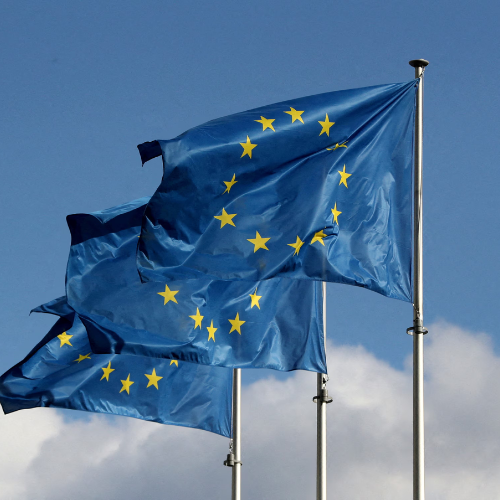Germany is taking a leading role in discussions within the European Union (EU) about relaxing the sanctions placed on Syria. These sanctions were originally imposed after the violent crackdown on protests by the Syrian government in 2011. The protests eventually turned into a full-blown civil war, causing widespread devastation and the displacement of millions. Now, some European officials are exploring ways to ease these sanctions, especially in sectors that could directly benefit the people of Syria.
Germany Leads the Discussion
Germany has been at the forefront of discussions on the potential easing of sanctions. Foreign ministry sources have confirmed that Germany is actively pushing for relief measures that could help improve the lives of ordinary Syrians. The idea is to allow certain types of assistance to flow into the country more easily, especially in areas like energy and humanitarian aid. However, this move is not without its complexities, as any change to sanctions requires the agreement of all EU member countries.
The sanctions were initially placed on Syria due to the actions of President Bashar Assad’s government, which used violent force against people demanding democratic reforms. Over the years, these sanctions have remained in place, contributing to economic hardship in the country. Now, Germany is proposing that the EU might consider loosening these restrictions to help Syrians, but this would only happen if progress is made on key issues, such as human rights and the protection of minorities.
The Role of Other Countries
Other major global players, including the United States, have also started to reconsider their stance toward Syria. Recently, the U.S. issued a six-month exemption to allow certain transactions with Syrian government bodies. This move was designed to help alleviate the country’s power shortages and make it easier for aid to reach those in need.
The EU has not yet made any official changes to its sanctions, but Germany’s push for a review is significant. There are talks about how the EU could ease some of these restrictions gradually. However, the change would not be permanent, and any sanctions relief would be conditional. The idea is that the EU could reverse the measures if Syria does not make progress on key social issues, like ensuring the protection of women’s rights and minority groups.
U.S. Eases Sanctions on Syria’s Rebel-Led Government
Key Concerns in the Discussions
A significant part of the ongoing discussions is centered around the humanitarian situation in Syria. The country has been devastated by the ongoing civil war, and millions of Syrians are struggling to survive. Germany’s move is part of a broader effort to address the suffering of the Syrian population by making it easier for aid to reach those who need it most.
There is also a focus on making sure that any easing of sanctions doesn’t inadvertently help the Syrian government’s power. Although some parts of the EU are considering relaxing the sanctions, they are cautious about ensuring that Assad’s regime does not benefit too much from the changes. For this reason, any easing of restrictions would come with conditions that would need to be met in order to ensure that the Syrian government remains accountable.
Additionally, Germany and the EU are concerned with ensuring that international rules on the non-proliferation of weapons are respected. This is particularly important because the Syrian government has been accused of using chemical weapons in the past. The EU is keen to make sure that any sanction relief is not used to bypass regulations meant to prevent the spread of dangerous weapons.
A Broader Transition for Syria’s Future
The talks also include broader concerns about the country’s future. For Syria to receive European support, the government in Damascus would have to involve all of Syria’s groups, including women, Kurds, and other minorities, in the process of rebuilding and transitioning the country. This is a crucial issue, as many groups have faced persecution during the conflict and any future peace process needs to be inclusive to be successful.
Although there are no official changes yet, the discussions between EU countries are crucial in deciding the future direction of relations with Syria. Germany’s role in leading the conversations highlights the increasing concern over the humanitarian crisis in Syria and the desire to find ways to help its people without strengthening the government’s grip on power.


